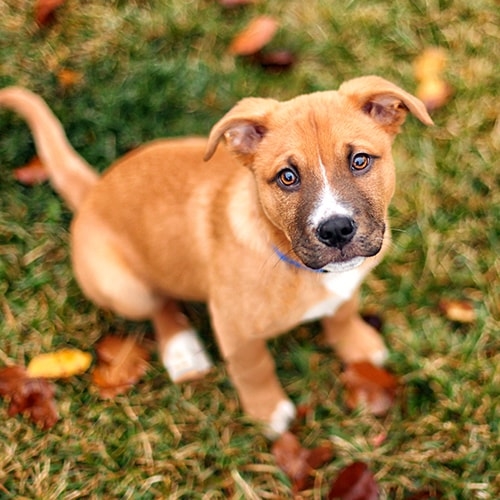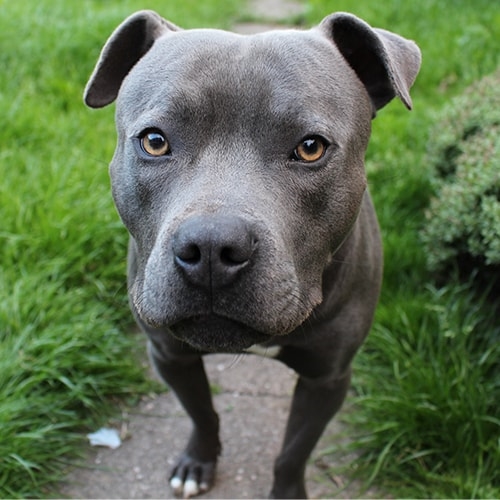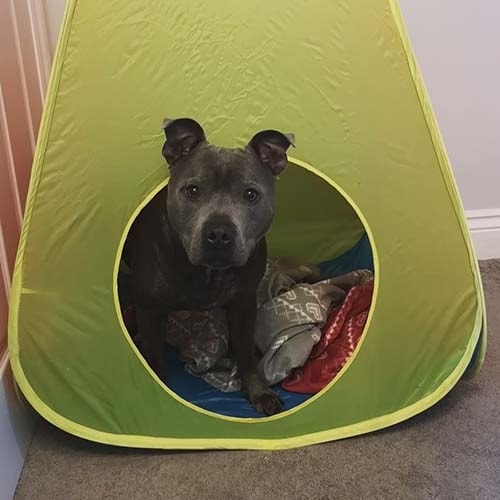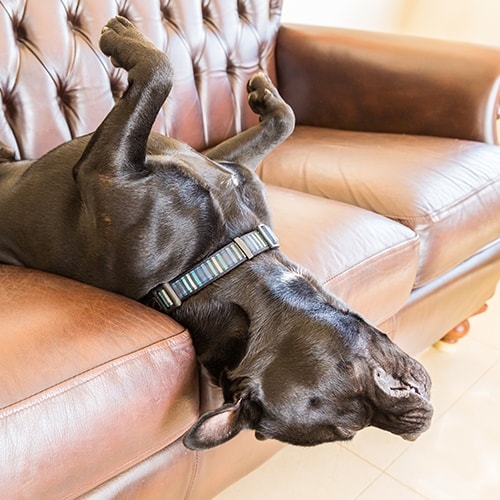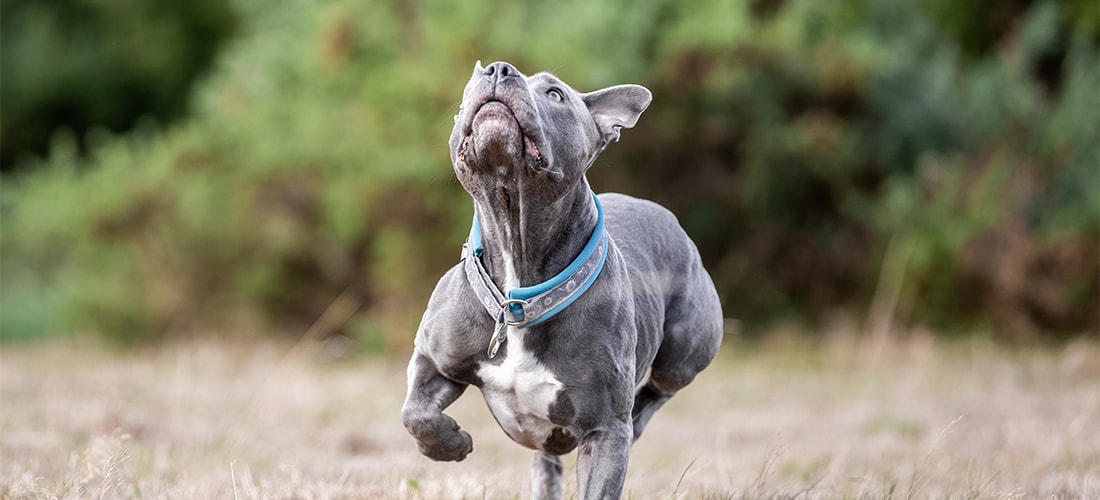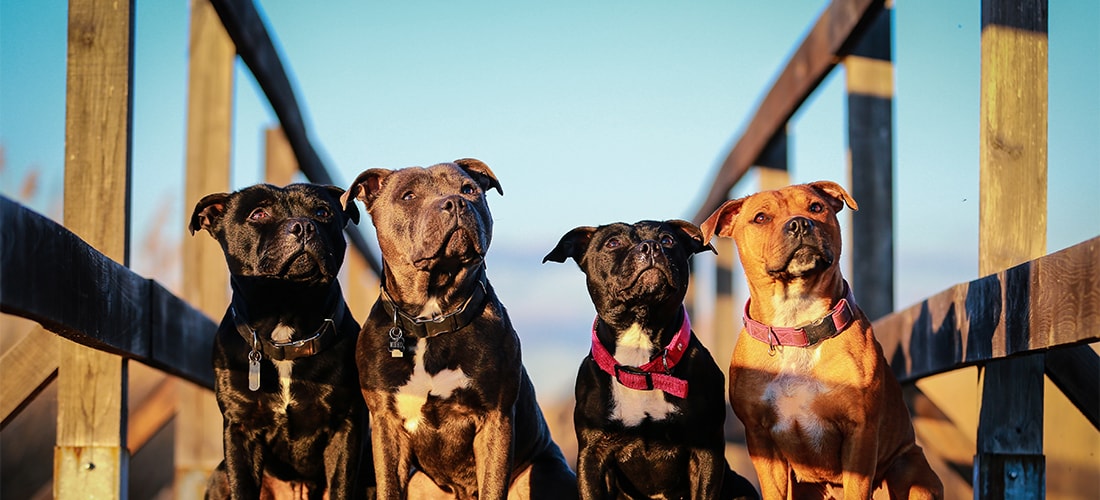Staffordshire Bull Terriers are lively and energetic dogs who love company and cuddles from their owner (once they’ve tired themselves out!). They love to be at the centre of anything going on in the home.
Staffies are stocky and solid dogs with seemingly boundless energy, which makes them the perfect pet for active households. They do best when there is someone around the home all the time to keep them company – otherwise you might find your furniture pays the price!
Common health problems in Staffordshire Bull Terriers
Staffies are wonderfully loving pets and most owners report just how cuddly and sweet-natured their Staffie is. Sadly, like so many other purebred dogs, they are at risk of certain conditions relating to their breed.
If you are thinking of buying a Staffordshire Bull Terrier puppy, make sure the parents of your puppy have had the relevant health screening to reduce the chances of your puppy being affected by certain conditions. We’d recommend looking for a Kennel Club Assured Breeder as they meet extra requirements which will benefit your puppy’s health.
Some of the conditions Staffies may develop include:
- Hip dysplasia – where the hip joint doesn’t fit together perfectly, which will eventually lead to arthritis. Before breeding, dogs should be screened by x-rays through the BVA/Kennel Club Hip Dysplasia Scheme.
- Skin conditions – Staffies can suffer from allergies and can also be affected by a skin condition caused by demodex mites.
- Certain cancers.
- Some eye conditions – there is currently testing available for some eye conditions.
- L-2-hydroxyglutaric aciduria – a metabolic disorder that affects the nervous system.
If you want to minimise the risk of your dog getting problems due to exaggerated features, you can read our advice on choosing a pedigree dog.
Caring for your Staffordshire Bull Terrier
Staffies are very people-orientated dogs who are likely to want to say hello to everyone out and about! They have lots of energy and can be boisterous well into their adult years so owners need to be prepared for this especially due to their solid build. In the right household, they can make the perfect family pets.
Like any breed, Staffies love the company of their owners and prefer to have someone around all day. They are known for suffering with separation anxiety, though, so ideally they need to live in a home where someone is with them all the time. They’re known chewers, so left to their own devices this could be fatal for your furniture and even your walls!
Staffies and barking
As with any dog, your Staffie is likely to make noise and how much they vocalise is down to the individual. Staffies aren’t really known for barking though – although many owners report snuffling and pig noises when they eat! If you’re having problems with excessive noise or barking, we recommend seeking the advice of an accredited behaviourist.
Training and socialisation
Staffies are intelligent dogs who will pick up on their training quickly, so starting positive, reward-based training early will really help them along the way. You might find they do like to test their boundaries, though, so consistency is key! Make sure you set clear boundaries and stick to them, handling your Staffie’s training with a firm but fair attitude. They can be strong-willed at times so if you are a first-time owner or new to the breed, you might benefit from taking your pup along to training classes, which you can find online. Because of their energy and excitable nature, it’s a good idea to work on your Staffie’s recall from an early age.
As long as your Staffie is socialised from a young age with different people, dogs and experiences, they should grow to be a confident dog, happy to go out and about. You might find that walks take a lot longer where there are lots of people around because your dog wants to say hello to everyone!
Because they are so people-orientated, Staffies are known to suffer with separation anxiety when left alone. You should never leave any dog alone for more than four hours, but you might find your Staffie struggles with shorter periods than this and you might need to train them to be OK with very short periods.
Exercise

